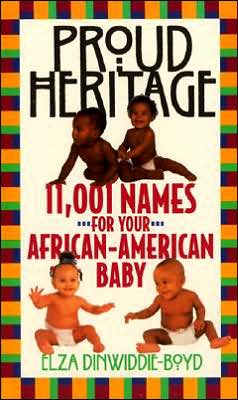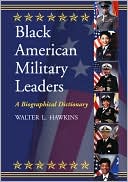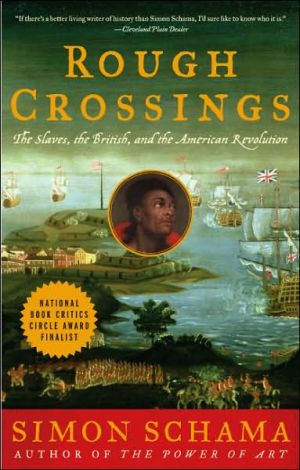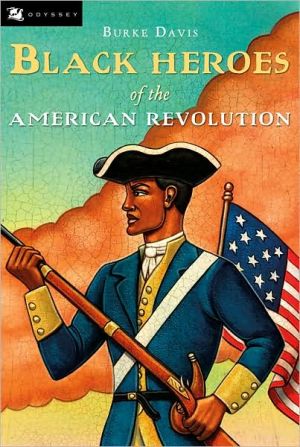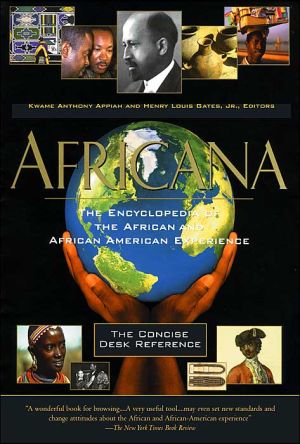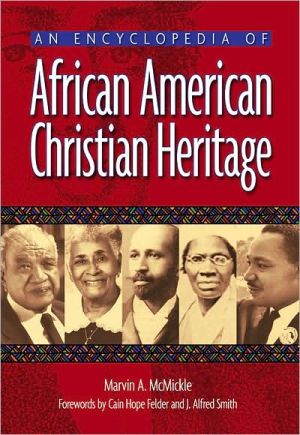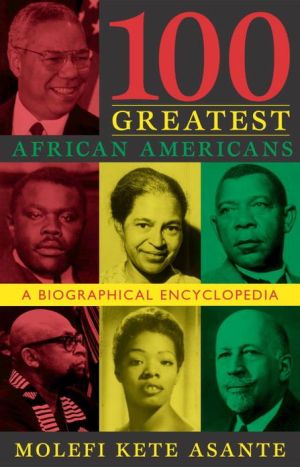Proud Heritage: 11,001 Names for Your African-American Baby
The first and only book of its kind—popular names, traditional names, African Names, names of famous African-Americans.\ Collected here for the first time is the most complete and comprehensive assortment of names to choose from when it comes to picking the perfect name for your newborn. Whether you are interested in the familiar or the unique and unusual, reflecting the influence of the European and American cultures or celebrating the rich roots of African ancestors, here are over 11,000...
Search in google:
The first and only book of its kind—popular names, traditional names, African Names, names of famous African-Americans.Collected here for the first time is the most complete and comprehensive assortment of names to choose from when it comes to picking the perfect name for your newborn. Whether you are interested in the familiar or the unique and unusual, reflecting the influence of the European and American cultures or celebrating the rich roots of African ancestors, here are over 11,000 selections, including origens and historical information. Names to instill pride and self-esteem in every beautiful, beloved new child.
Names from Africa\ A proverb among the Yoruba of Nigeria cautions parents to "consider the state of your life before you name a child." Throughout the continent one finds that 'names are often intended in a very literal sense to clarify circumstance, family and clan connections, character attributes, or character flaws.\ Africans tend to value highly family and family history, thus African naming is a family affair. Universally, African naming ceremonies and rituals contain three major components:\ \ They are a spiritual package reconnecting the living with their ancestors. A newborn baby may be named for a family trait. This practice reconnects the clan with its past. For example, if a family has been known over the generations for producing brave warriors, the child's name might reflect this attribute.\ They are a social commentary on who you are and what the family is all about. A God-fearing, Godloving family among the Yoruba of Nigeria may use the name Olutoyin, which translates as God is enough to praise, or Olulaanu, which means God has mercy.\ They reflect the hopes and aspirations of the family. Africans are expressing a universal human response when the names they give their offspring reflect their desires for them.\ \ \ \ However, naming in Africa doesn't necessarily stop at birth. As social commentary, your name can be changed to describe your current circumstance or what you have be come. And on this score our cousins across the great sea make no bones about it; if you have grown to become a negative your new name will say so. A very literal description of what the child has become isfound in Bamwoze, a boy's name in Uganda, which means the child who is spoiled, or in Walugyo, a Uganda boy's name, which means he doesn't like to give, but he likes to be given. A girl may be called Katebulanya, meaning troublemaker. A boy or girl who has become a liar will be renamed Kalimbira. A very literal circumstantial name is Najjawambi, a Ugandan girl's name, which means the mother died after the birth, or the unisex Mulekwa, which means one who has no father.\ Communication specialist and college teacher W. Adewale Legunleko says that among the Yoruba of southwestern Nigeria and their kinfolk in Togo and the Republic of Benin, a baby's name is taken from the family's Oriki--a recapitulation of ancestral deeds, worth, and place in history. To the casual student of this cultural watershed, the Oriki seems nothing more than a praisesong. Legunleko warns us not to take this pedestrian view of the Oriki, as it is the central key in the name ceremony of the Yoruba child. Tradition holds that every child has a natural Oriki by virtue and circumstances of birth and family history. The Oriki extolls the grandeur of royalty, the deeds of the accomplished; it accentuates their honor and celebrates their achievements as a reminder for the next generation to emulate.\ The example below is taken from the hours-long Oriki of Legunleko's mother, 80-year-old Aduke Ibidun Bakare of Lagos, Nigeria. This excerpt gives a brief history of her father's ancestors.\ Ibidun ani\ Oino Nmere Ogudu\ Omo Ara Isheri\ Omo oloko\ lwaju oloko nsowo\ Eyin oloko nso odigba ileke\ Omo kaf'owo wa kaf'aje wa\ Ka f'ogedegede owo wa oko de Isheri ...\ \ Sweet and lovely one\ Child of Nmere Ogudu [the sturdy one]\ Begotten of the great and candid warrior\ Child of Isheriland [their famous homestead] Child of the great seafarer\ The bow of his boat is laden with great wealth The stem laden with priceless beads\ Child of the great pilot\ Who paddles with bare hands Paddles with oars\ Guided his boat without a paddle all the way to Isheri ...\ \ The Arabic Influence\ \ \ Since the invasions of the seventh century, Arabic has greatly influenced African languages. The Hausa and Swahili names listed in this section have a great resemblance to Arabic. Although not as apparent, Wolof is also influenced by Arabic.\ In some cases the same name will have different meanings among different ethnic groups. Where the language of origin is not known, the country or region is noted.\ 11,001 Afro-American Baby Names. Copyright © by Elza Dinwiddie-Boyd. Reprinted by permission of HarperCollins Publishers, Inc. All rights reserved. Available now wherever books are sold.
